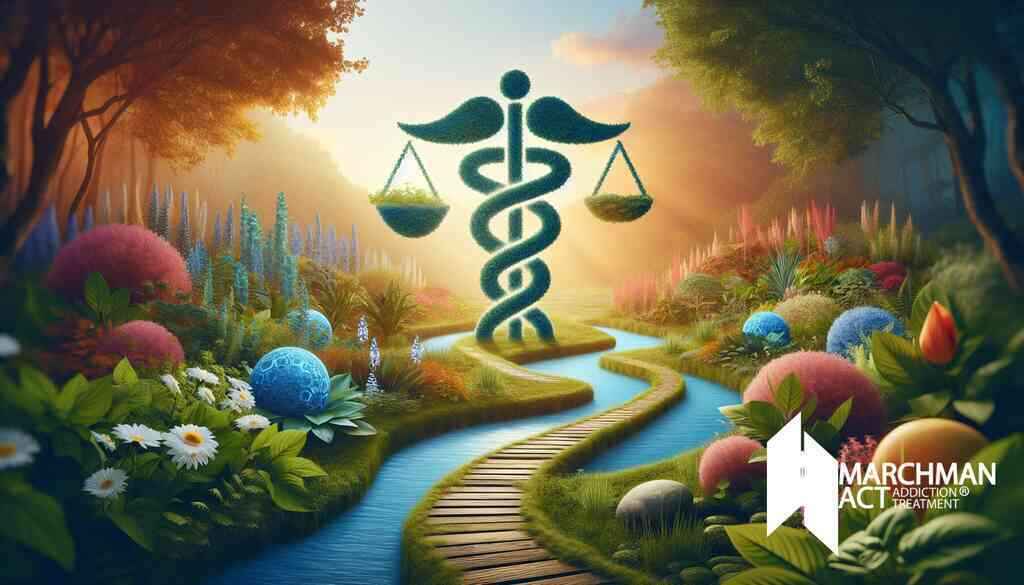Decoding Marchman Act Dynamics and Their Impact on Care Systems
Unlocking the Complexities of the Marchman Act
Historical Context and Evolution in Florida’s Legal System
The Florida Marchman Act originated to provide a structured and compassionate framework for addressing substance abuse through legal and therapeutic channels. Enacted in 1993, this legislation allows for the involuntary assessment and stabilization of individuals struggling with addiction, aiming to offer a lifeline to those unable or unwilling to seek help on their own. Over the years, the act has evolved, reflecting shifts within Florida healthcare laws and interventions, balancing legal enforcement with humanistic care strategies. Its development marks a pivotal shift in how the legal system approaches addiction, reinforcing the importance of a supportive rather than punitive response. This evolution highlights the ongoing commitment of Florida’s legal infrastructure to adapt to the complexities of substance abuse treatment.
Comparison with Other Civil Commitment Laws in the US
When compared to other civil commitment laws in the United States, the Marchman Act is unique in its dual focus on legal and therapeutic outcomes. Unlike some states where the legal system predominantly exercises punitive measures, Florida’s approach integrates recovery pathways within its legal framework. Other states have varying processes and thresholds for involuntary commitment, yet the Marchman Act stands out for explicitly addressing both mental health and substance abuse disorders concurrently. Through an intricate blend of Rehabilitation services and recovery pathways, the Marchman Act exemplifies a more holistic approach, ensuring that legal mandates align closely with therapeutic objectives. This comparative analysis underscores the importance of a multidisciplinary approach in crafting effective civil commitment laws.
The Marchman Act’s Dual Role: Legal and Therapeutic Dimensions
The Marchman Act operates at the intersection of law and healthcare, serving both as a legal instrument and a therapeutic intervention. It mandates court-ordered treatment for individuals struggling with addiction, providing a structured environment for recovery. This dual role is instrumental in addressing the immediate safety concerns while concurrently promoting long-term health benefits. Judicial measures, when combined with therapeutic interventions, can significantly enhance the probability of successful treatment outcomes. As an essential component of Florida’s addiction recovery system, the Marchman Act exemplifies how legal mechanisms can positively influence health outcomes through Substance Abuse in healthcare systems. By fostering collaboration between legal and healthcare professionals, it bridges the gap between enforcement and empathy, ensuring that individuals receive comprehensive support.
Navigating the Marchman Act in Practice
Initiating the Process: Filing a Petition in Florida
Filing a petition under the Marchman Act in Florida initiates a critical process for addiction intervention. Family members or loved ones concerned about someone’s substance abuse can take this legal step to ensure necessary treatment. The process starts by submitting a sworn affidavit to the court, detailing the individual’s substance abuse issues and the need for involuntary treatment. Once filed, the court evaluates the petition to determine if it meets the legal criteria for intervention. It’s crucial to understand the nuances involved, as initiating this process requires an accurate presentation of facts to expedite the path to recovery. Individuals navigating the Marchman Act can find assistance from experienced professionals within addiction treatment services and centers across Florida.
Legal Thresholds and Challenges in Implementation
The Marchman Act’s implementation encounters specific legal thresholds that must be met before proceedings can advance. The court assesses the severity of the addiction, potential harm, and evidence of the person’s inability to make informed decisions about their health. Challenges often arise in proving imminent danger or incapability, requiring detailed documentation and testimony. These hurdles can delay the process, necessitating a strategic approach to overcome bureaucratic and legal obstacles. Families and practitioners must prepare thoroughly, leveraging legal guidance to ensure the petition meets all statutory requirements. Understanding the inherent challenges aids in navigating the intricate landscape of Florida civil procedures, a necessary part of securing court-ordered treatment.
Role of Intervention Specialists and Family Support
Intervention specialists are integral to the Marchman Act process, bridging the gap between families and the legal system. Their expertise aids families in effectively articulating the necessity for legal intervention and crafting comprehensive petitions. These professionals facilitate communication and coordinate with legal entities to streamline the process. Equally vital is the support from family members, who provide emotional backing and first-hand information critical for constructing a robust case for intervention. Through joint efforts, both specialists and families contribute to a supportive network that maximizes the likelihood of a court-mandated intervention. Their collaboration ensures the intervention not only complies with legal standards but is also compassionate and centered around recovery.
Alternatives and Complementary Paths to Recovery
While the Marchman Act provides a structured pathway for legal intervention, alternatives exist for those seeking voluntary or alternative treatment options. Structured recovery plans, intensive outpatient programs, and support groups such as AA Meetings and NA Meetings offer additional avenues for assistance. These programs often work in tandem with legal interventions, providing a holistic approach to recovery through Intensive Outpatient Programs. Moreover, facilities like sober living houses foster environments conducive to healing and sustained sobriety. Emphasizing these complementary paths highlights the multifaceted nature of addiction recovery in Florida. Individuals are encouraged to explore diverse treatment modalities, thereby enhancing their support systems and increasing the chances for long-term recovery success.

Impact and Outcomes of the Marchman Act
Analyzing Success: Effective Treatment Pathways
The Marchman Act opens a gateway to effective treatment pathways essential for those grappling with addiction. It provides a structured entry into rehab and recovery centers, enabling individuals to receive targeted interventions tailored to their needs. By mandating treatment, the Act strives to combat substance abuse through a legally guided framework that increases accountability and support. This approach has demonstrated considerable success across Florida, particularly in counties like Miami-Dade, where court-ordered treatment has elevated standards of care. Analyzing these pathways reveals a significant correlation between legal intervention and enhanced treatment efficacy, underscoring the Marchman Act’s vital role in fostering sustainable recovery.
Challenges in Measuring Long-term Recovery Outcomes
Measuring long-term recovery outcomes under the Marchman Act remains an intricate challenge. The complexity of addiction recovery, compounded by the variability in individual responses to treatment, makes standard assessments difficult to attain. Longitudinal studies are necessary, yet they often encounter systemic barriers such as inadequate data tracking and inconsistent follow-up procedures. These challenges are not unique to Florida but are pervasive across numerous US jurisdictions. To address this, standardized metrics and comprehensive evaluation frameworks that can effectively gauge the Act’s impact over time need to be developed. Understanding these complexities aids in refining strategies for ongoing improvements in addiction recovery pathways.
Therapeutic Jurisprudence and its Role in Addiction Recovery
Therapeutic jurisprudence plays a pivotal role in shaping addiction recovery under the Marchman Act. It emphasizes the law’s capacity to heal, integrating legal principles with therapeutic outcomes to enhance recovery. This approach challenges traditional punitive models, advocating for a system where legal measures align closely with behavioral health goals, as explored in Understanding the Marchman Act’s Reach in Florida’s Court System. Through therapeutic jurisprudence, the Marchman Act not only enforces treatment mandates but also fosters an environment conducive to psychological and emotional recovery. This dual focus ensures that individuals receive comprehensive care, where the legal system acts as both a facilitator and support in the journey toward sobriety.
Personal and Systemic Effects of Court-Ordered Treatment
Court-ordered treatment under the Marchman Act creates distinctive personal and systemic effects that warrant examination. On a personal level, individuals often experience a shift in perspective, acknowledging the serious nature of their addiction and the importance of professional help. This legally enforced intervention can serve as a wake-up call, prompting a commitment to change. Systemically, the Marchman Act influences public health policies by setting precedents for how legal systems can actively contribute to tackling substance abuse. It facilitates a collaborative relationship between the courts and healthcare providers, fostering a comprehensive system of care that extends beyond mere legal compliance. Such integration enhances the efficiency of addiction treatment programs throughout Florida, providing a robust framework for others to emulate. Through these effects, the Act illustrates its transformative potential within the broader continuum of addiction recovery.
Looking Ahead: Future Directions in Addiction Treatment Legal Frameworks
Innovations in Legal Interventions for Substance Abuse
As the landscape of addiction recovery evolves, innovations in legal interventions continue to emerge, reshaping the future of treatment under the Marchman Act. One significant development is the integration of technology to streamline involuntary commitment procedures in addiction, enhancing the efficiency and accessibility of these interventions. Digital platforms now enable real-time updates on case proceedings, improving communication between legal and healthcare providers. Additionally, predictive analytics advancements offer profound insights into potential relapse patterns, allowing for more tailored and proactive legal mandates. These technological innovations reflect an adaptive legal framework that seeks to enhance the efficacy of substance abuse interventions, providing individuals with personalized pathways to recovery. As the legal system embraces these changes, it underscores a commitment to refining addiction treatment dynamics in response to emerging societal needs.
Policy Shifts and Recommendations for Improvement
Recent policy shifts highlight the growing recognition of holistic approaches in addressing substance abuse through legal channels. To amplify the Marchman Act’s impact, recommendations call for the alignment of state policies with national addiction recovery goals, ensuring that Florida remains at the forefront of effective legal interventions. This includes advocating for expanded training programs for legal professionals to address the complexities of addiction adequately. Furthermore, integrating community-based resources with legal strategies can enhance support networks, fostering an environment that prioritizes accessibility and comprehensive care. Legislators are urged to consider these recommendations, promoting a forward-thinking legal structure that balances enforcement with empathy. By adopting these policy advancements, Florida’s legal system can continue to evolve, adapting to the nuanced demands of addiction recovery, highlighted in the Marchman Act’s Advanced Tactics for Family Interventions.
Expanding Access and Enhancing Recovery-Oriented Systems of Care
Expanding access to recovery-oriented care systems is paramount in enhancing the Marchman Act’s efficacy. This involves broadening the availability of addiction treatment resources, such as Intensive Outpatient Programs and sober living arrangements, to support individuals post-intervention. Collaborations between legal entities and healthcare providers are crucial in this endeavor, ensuring seamless transitions from court-mandated interventions to long-term treatment strategies.
Moreover, increasing public awareness of available services and legal options can empower individuals and families to engage proactively with the recovery process. By fostering an ecosystem that prioritizes accessibility and comprehensive support, Florida can enhance its commitment to sustainable addiction recovery. This strategic expansion aligns with overarching objectives to not only meet immediate legal mandates but also cultivate lasting changes in the lives of affected individuals. Through these concerted efforts, the Marchman Act’s role in shaping a resilient, recovery-oriented landscape becomes increasingly pronounced.
Concluding Reflections: Transforming Legal Mandates into Healing Journeys
Synthesis of Legal and Therapeutic Approaches
The fusion of legal and therapeutic approaches within the framework of the Marchman Act signifies a transformative step in addiction recovery. By intertwining legal mandates with empathetic care strategies, Florida’s legal system exemplifies a progressive model that addresses substance abuse challenges at their core. This synthesis empowers individuals, ensuring that legal processes do not stand isolated from therapeutic interventions. The addiction treatment strategies embedded within the Marchman Act advocate for comprehensive recovery, where legal oversight aligns with compassion-driven care. As a result, this integrative approach not only helps in addressing immediate concerns but paves the way for sustained recovery.
Cultivating Hope and Resilience in the Recovery Process
Cultivating hope is a cornerstone of the recovery journey, transforming daunting legal challenges into opportunities for change. The Marchman Act offers a lifeline to those enmeshed in the throes of addiction, binding legal actions with recovery-centric philosophies. This dynamic encourages resilience, with legal interventions serving as catalysts for personal growth and healing. By incorporating therapeutic jurisprudence, individuals under the Marchman Act can access recovery pathways that inspire lifelong change. Through continued legal and familial support, hope becomes an achievable and essential part of the addiction treatment process, giving individuals the tools they need to reclaim their lives.
Creating a Supportive Ecosystem for Sustainable Change
Establishing a supportive ecosystem is crucial for sustainable change under the Marchman Act. This involves fostering an environment where legal, therapeutic, and community resources converge, offering a network of support for those transitioning to recovery. Collaboration between the courts and mental health resources enhances accessibility and the effectiveness of treatment. A multi-dimensional support structure empowers individuals by addressing not only their immediate needs but also by cultivating long-term resilience. By expanding access and integrating diverse resources, Florida can continue to strengthen its commitment to sustainable recovery, reinforcing the Marchman Act’s role as a pivotal element in transforming legal mandates into genuine healing journeys.

Frequently Asked Questions
Question: What are the benefits of using the Marchman Act in Florida for involuntary addiction treatment?
Answer: The Marchman Act offers a structured legal framework that ensures individuals struggling with addiction receive necessary treatment, even if they are unable or unwilling to seek help voluntarily. By facilitating court-ordered interventions it enhances accountability and increases the chances of long-term recovery. With the support of experienced professionals at Marchman Act Addiction Treatment, families are guided through the process smoothly, ensuring their loved ones receive compassionate and effective care. This integration of legal and therapeutic approaches is key to achieving successful treatment outcomes.
Question: How do intervention specialists contribute to the success of the Marchman Act process at Marchman Act Addiction Treatment?
Answer: Intervention specialists at Marchman Act Addiction Treatment play a vital role in bridging the gap between concerned families and the legal system. They assist in preparing comprehensive petitions that accurately present the need for intervention under the Florida Marchman Act. By offering professional guidance and emotional support, these specialists ensure that families are well-equipped to navigate the complexities of the legal proceedings. Their expertise enhances the efficacy of substance abuse interventions, making the process as streamlined and supportive as possible.
Question: How does the Marchman Act Addiction Treatment center in Florida address both the legal and therapeutic needs of individuals under the Marchman Act?
Answer: At Marchman Act Addiction Treatment, we understand the importance of addressing legal and therapeutic aspects of addiction recovery. Our team works closely with legal professionals to ensure compliance with all Florida civil procedures while simultaneously providing individualized treatment plans tailored to each person’s specific needs. This dual focus meets legal mandates and promotes sustainable recovery through compassionate care and evidence-based treatment strategies, illustrating our commitment to transforming legal mandates into healing journeys, as discussed in Decoding the Marchman Act’s Role in Modern Health Approach.
Question: In the blog ‘Decoding Marchman Act Dynamics and Their Impact on Care Systems’, how does the Marchman Act impact long-term recovery outcomes?
Answer: As highlighted in the blog ‘Decoding Marchman Act Dynamics and Their Impact on Care Systems’, the Marchman Act significantly impacts long-term recovery by legally mandating treatment that aligns with therapeutic goals. Despite challenges in measuring outcomes, the structured pathways it provides have been shown to increase the efficacy of addiction treatment programs across Florida. Marchman Act Addiction Treatment’s comprehensive approach, combining legal and therapeutic elements, fosters environments where individuals are more likely to achieve sustained sobriety, thereby enhancing long-term recovery outcomes.
Question: Are there alternative recovery paths available alongside the Marchman Act?
Answer: Yes, alongside the structured interventions provided by the Marchman Act, Marchman Act Addiction Treatment encourages exploring alternative recovery paths such as Intensive Outpatient Programs and support groups like AA and NA Meetings. These complementary avenues provide additional support and flexibility, allowing individuals to engage with recovery paths suited to their unique circumstances. Our center emphasizes a holistic recovery model, ensuring that each person receives a network of support tailored to aid their journey towards lasting sobriety.




